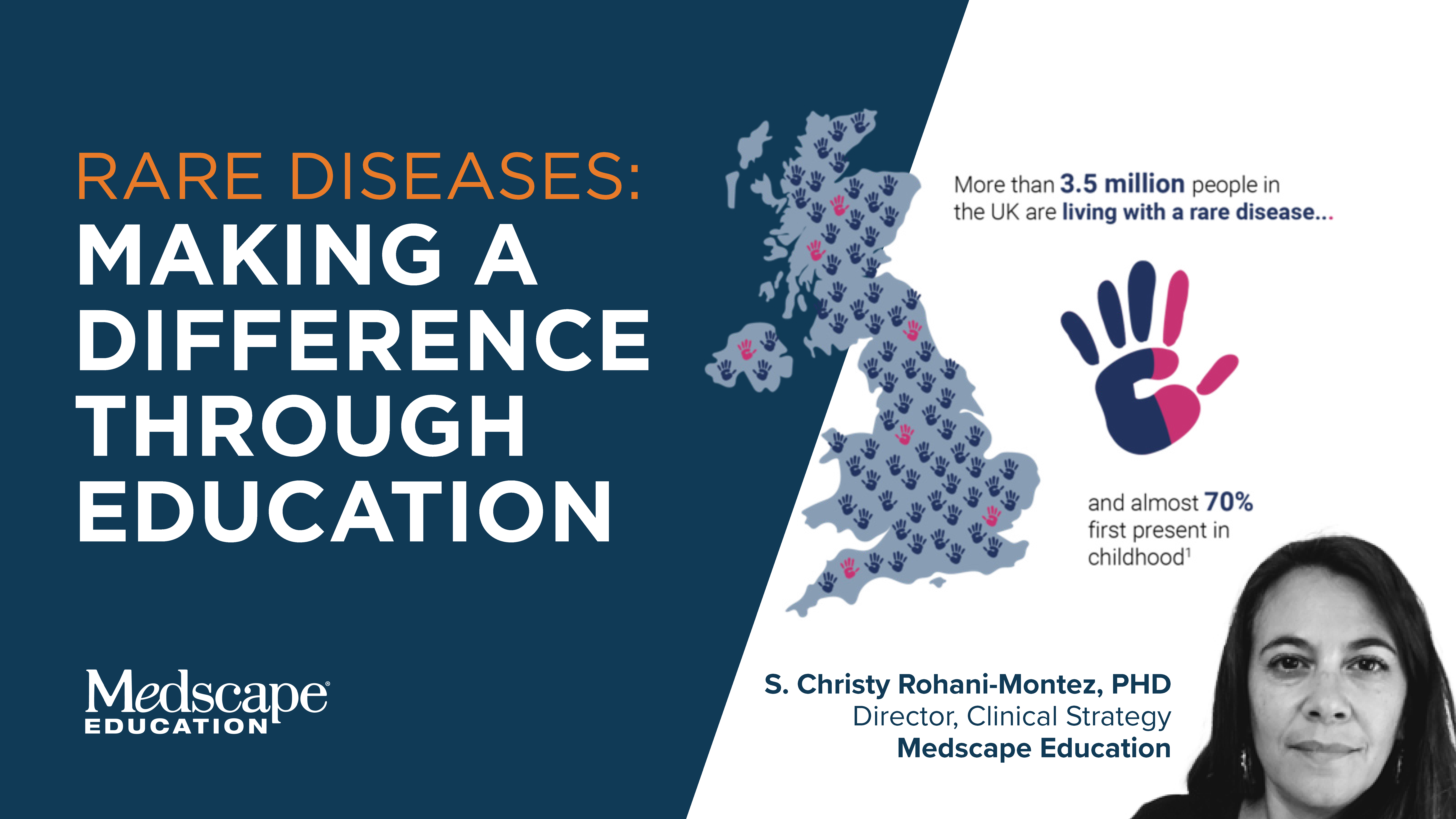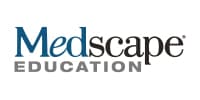Rare diseases: making a difference through education
September 28, 2022 | Medscape, medical education, rare diseases
Medscape Education team up with The Guardian to launch a Rare Disease campaign in the UK.

Medscape Education has collaborated with MediaplanetUK on a Rare Diseases campaign which launched online and in The Guardian newspaper on September 27th.
For a majority of the estimated 300 – 400 million patients worldwide living with a rare disease,2 the challenge begins with the diagnostic process, which can sometimes last decades. This equates to over 3.5 million people in the UK.3

To reduce the diagnostic and treatment delay that exists for many rare diseases, education is crucial. These patients are bounced between multiple primary care practitioners and various specialists to undergo tests and seek answers. Often, no one clinician can put the pieces together to confirm diagnosis. This can place a large burden on healthcare systems as patients go through batteries of tests that may be invasive and/or unnecessary, only for the patient to receive a delayed diagnosis or even an incorrect one leading to late and/or harmful treatment. This may then result in disease progression and potentially irreversible organ damage.
The effect of education on diagnosis
Clinician education can help combat the challenges of rare disease diagnosis and management. A stark reality of the situation is that many clinicians do not think they see rare diseases enough to be able to recognise them. In a survey of 978 clinicians across 16 different specialities taken by Medscape Education, it was shown that the prevalence of rare diseases is vastly underestimated.
Most clinicians only see patients with rare diseases once or twice a year, and only 20% feel confident in making a rare disease diagnosis.3 But those who have participated in Medscape rare disease education have significantly increased their knowledge and competence in diagnosis and treatment and have reported that they will make changes in their practice based on their learnings.
A destination for learners
As part of an initiative to improve access to education for rare disease diagnosis and management, Medscape Education created a dedicated learning centre. It houses more than 125 educational activities and is collaborating with medical societies, patient advocacy groups, and other organisations to provide access to disease-specific and general rare disease resources and information.
“The millions of people who live with a rare disease may feel isolated, but they share a common goal of needing a diagnosis and proper management of their disease. We are ideally positioned to reach clinicians with the education they need due to our vast membership and the trust clinicians have in us, and that is why we established this learning centre. There are a variety of useful resources available, all with the goal of reducing the delay in diagnosis and increasing awareness of available treatments,” says Dr Hansa Bhargava, Medscape Education CMO.
Scientific developments underway
The future of rare disease diagnosis and management has its bright spots and continuing challenges. An astonishing 95% of rare diseases have no treatments.3 However, progress is being made in terms of new therapies being approved by regulatory bodies; and orphan designations and priority/fast-track reviews, as well as government incentives, are helping to increase the number of treatments every year.
Because about 80% of rare diseases are associated with a genetic mutation,4 gene therapy is a possible therapeutic avenue in many cases. It’s been a slow road, but gene therapy technology advances have skyrocketed, and access to and the cost of genetic testing has eased, which is enabling earlier detection of rare diseases and potentially curative treatments. Even more compelling for earlier and more specific diagnosis will be the combination of information that may include genetic markers and other disease markers, as well as the use of AI-based algorithms.
Dr Bhargava adds: “We are on the cusp of a plethora of new diagnostic and therapeutic approaches that will revolutionise the field of rare diseases, and it will be exciting to see where we go next.”
About Medscape Education:
Medscape Education (medscape.org) delivers dynamic, innovative education to optimize learner engagement and patient outcomes worldwide. Medscape Education is the leading online global destination for physicians and healthcare professionals, providing over 5 million members with the latest medical news, expert opinion, and precision education (CME and CPD) to improve clinical practice and advance health outcomes. Medscape’s unrivalled membership reach and therapeutic expertise deliver education across 30+ specialties in 40+ learning formats, using the latest digital and live technology. Medscape is a subsidiary of WebMD Health Corp.
About WebMD
WebMD Health Corp., an Internet Brands Company, is the leading provider of health information services, serving patients, physicians, health care professionals, employers, and health plans through our public and private online portals, mobile platforms, and health-focused publications. The WebMD Health Network includes WebMD Health, Medscape, MedicineNet, eMedicineHealth, RxList, OnHealth, Medscape Education, and other owned WebMD sites. WebMD®, Medscape®, CME Circle®, Medpulse®, eMedicine®, MedicineNet®, theheart.org®, and RxList® are among the trademarks of WebMD Health Corp. or its subsidiaries.
This content was provided by Medscape Education Global





